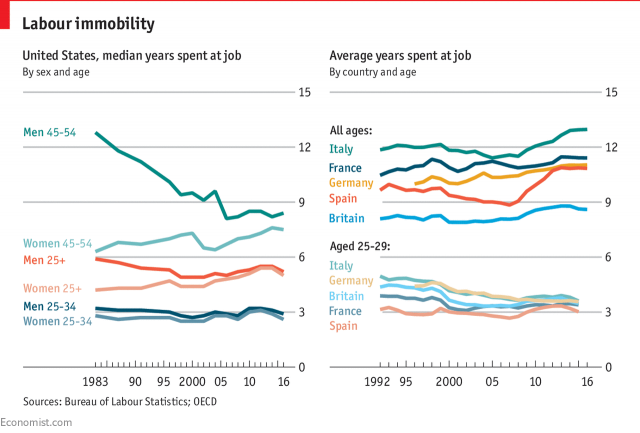 Just what the world needs – another blog about millennials.
Just what the world needs – another blog about millennials.
I know – we are all tired of talking about them but I did find one interesting fact that helps support my belief that Millennials are not that dramatically different than their peers from previous generations.
The statistic that caught my attention is that the rate of Millennial job turnover is not that measurably different than previous generations.
I am a loyal reader of the Steve Boese HR Technology blog. He writes about the intersection of HR and technology and consistently offers great insights, based on facts, that help someone look at is issue or trend differently. His October 28th blog What do you think you know about job hopping? discussed whether the turnover of today’s Millennials is any different than the previous early-career generations.
He opens the blog with a Mark Twain reference used in the outstanding movie The Big Short:
It ain't what you don't know that gets you into trouble. It's what you know for sure that just ain't so.
This was used as a set-up to challenge the conventional wisdom that Millennials switch jobs more often than previous generations. This seemed to make sense given all that has been written and discussed how Millennials lack loyalty and attachment to organizations and major institutions. The conventional line is they are always looking for the next big thing and have one foot out the door.
Is this true? Richie Norton is his Medium blog post The 14 Most Destructive Millennial Myths Debunked by Data succinctly summarizes this way:
“They want roughly the same things regardless of when they were born: to be given interesting work to do, to be rewarded on the basis of their contributions and to be given the chance to work hard and get ahead (The Economist).
The Steve Boese blog then led me to an Economist blog Millennial Americans are still company men and women. In the blog, they get right to the point and say:
EVERYBODY knows—or at least thinks he knows—that a millennial with one job must be after a new one. Today’s youngsters are thought to have little loyalty towards their employers and to be prone to “job-hop”. Millennials (ie, those born after about 1982) are indeed more likely to switch jobs than their older colleagues.
But that is more a result of how old they are than of the era they were born in. In America at least, average job tenures have barely changed in recent decades.
Data from America’s Bureau of Labour Statistics show workers aged 25 and over now spend a median of 5.1 years with their employers, slightly more than in 1983 (see chart).

Job tenure has declined for the lower end of that age group, but only slightly. Men between the ages of 25 and 34 now spend a median of 2.9 years with each employer, down from 3.2 years in 1983.
It is middle-aged men whose relationship with their employers has changed most dramatically. Partly because of a collapse in the number of semi-skilled jobs and the decline of labour unions, the median job tenure for men aged 45-54 in America has fallen from 12.8 years in 1983 to 8.4. That decline has been offset by women staying longer in their jobs and higher retirement ages, which is why the overall numbers have barely changed.
What does the data show?
Millennials do switch jobs more often than their older counterparts but they are not behaving measurably different than younger workers of previous generations.
I remember entering the workforce in the 80’s and the prevailing wisdom was that career mobility could be enhanced by job switching. It was a departure from the previous generational belief that the best path was to find a strong corporation where you could work your way up the ladder. This worked for my Dad (35 years with Ford Motor Company). It did not fit my goals though (three job/company changes by the time I was 30).
As the saying goes: The truth shall set you free”.
Millennial turnover will be higher than for older workers. This does not mean that they are behaving differently. The answer is to provide opportunities for advancement and meaningful works so that they stay engaged.
![]()



